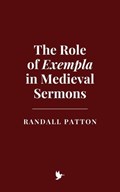This book provides a comprehensive examination of the role of exempla—moral stories, parables, and narratives used in medieval Christian preaching and education—tracing their development and lasting impact across centuries. Beginning with their biblical roots and early Christian uses, it explores how exempla became essential tools for moral instruction during the medieval period, particularly in sermons delivered by clergy, mendicant orders, and scholars. These stories were used to simplify complex theological concepts and engage audiences, ranging from the illiterate layperson to the educated elite, with vivid and accessible teachings on virtues, sin, and divine justice. The book also delves into the creation of written collections of exempla, which preserved these narratives for future generations, and the role they played in both religious and secular contexts.
As the book progresses, it examines the decline of exempla in the early modern period, particularly in the wake of humanism, the Protestant Reformation, and the Enlightenment. These intellectual shifts challenged the traditional role of exempla in religious instruction, as reason and individual reflection began to replace narrative-driven morality. Despite this decline, the book shows how the legacy of exempla endures in modern literature, ethics, and religious practice, influencing the way we continue to use stories to teach moral lessons. The work concludes by reflecting on the continuing relevance of exempla in shaping cultural and ethical frameworks in contemporary society, underscoring the timeless power of storytelling to convey moral and spiritual truths.

